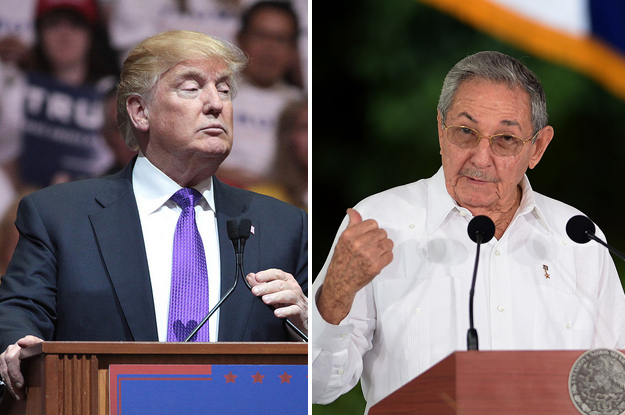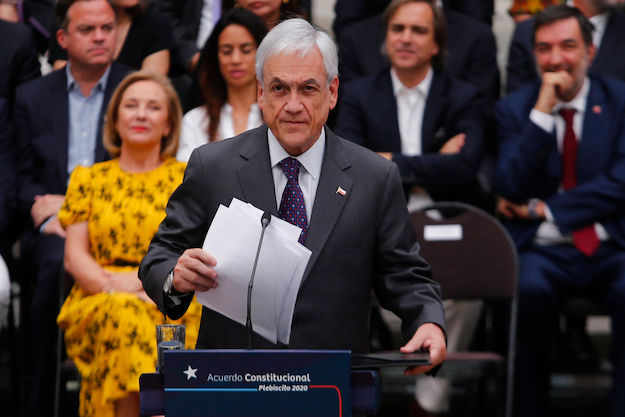President-elect Donald J. Trump has vowed “to terminate the deal” that his predecessor in the White House negotiated with Cuba’s President Raúl Castro. Trump’s incoming chief-of-staff, Reince Priebus, last week added these details in an interview on “Fox News Sunday”:
“Repression, open markets, freedom of religion, political prisoners – these things need to change in order to have open and free relationships,” Priebus said. “There’s going to have to be some movement from Cuba in order to have a relationship with the United States.”
In fact, beyond the exchange of prisoners and humanitarian gestures carried out two years ago, there was no conventional deal behind most of President Barack Obama’s Cuba initiatives. Rather, Obama mostly acted unilaterally in the belief that rebuilding relations between the U.S. and Cuba would eventually move a post-Castro Cuba toward a more open economy and freer society. Obama was playing the long game, confident that removing the U.S. as “the enemy” would help the Cuban people opt for more pluralist alternatives to an archaic centralized socialism.
For Obama, then, attempting to negotiate each step with the Cuban government in a tit-for-tat exchange would only have delayed matters, and conceded to Havana control over the pace of change.
Donald Trump, by contrast, fashions himself a dealmaker, and as such wants to extract some “concessions” from across the table. But in the hypersensitive arena of U.S.-Cuba relations, such an approach has historically been counterproductive.
To ask that the Cuban government abandon power is of course a non-starter, just as Trump the businessman would never forfeit all his corporate assets for the sake of negotiation. But if the president-elect is prepared to temper some of his rhetoric, the outlines of a grand bargain that would be in the mutual interests of both countries, and allow both Trump and Raúl Castro to save face and declare victory, could begin to take shape. That could include cooperation on issues like terrorism and narcotics, private property claims, open markets (domestic and international), and, in the political sphere, religious freedoms, internet access and political prisoners.
All signs point to the Trump administration making the battle against international terrorism the centerpiece of its foreign policy. In this prolonged struggle, the U.S. and Cuba are very much on the same side: Marxists typically view terrorism as foolishly provocative and politically counterproductive. The U.S. and Cuba do not always agree on which organizations deserve the terrorist label, but an agreement in principle – and with specific measures to combat terrorist financing and arms trafficking – is certainly feasible. Indeed, the U.S. and Cuba have already signed agreements on international law enforcement and counternarcotics that could be wrapped into a comprehensive security cooperation accord. They could also accelerate progress on handling fugitives and migrant smuggling.
Another low-hanging fruit would be settlement of claims of U.S. property holders nationalized in the early days of the Cuban revolution. U.S. authorities have certified some 6,000 claims valued at $2 billion in 1960 dollars. The Cubans accept the principle of compensation for nationalized properties, and two rounds of bilateral talks have been held. The outline of an agreement is apparent: Cuba could agree to compensate the smaller claims – worth around $230 million – while allowing the larger corporate claimants to re-enter the Cuban market under mutually acceptable terms. However, Cuba would have to drop its claims for damages from the U.S. commercial embargo, a deal-breaker that would create unacceptable precedents for any government that regularly employs economic sanctions as an instrument of diplomacy.
Well aware of the failings of its outdated socialist economy, Cuba has been relaxing restrictions on domestic business and international investment for some time. The Trump administration could add its weight to those many Cubans who are demanding more rapid progress toward a market economy. The Cuban authorities could credibly claim that they were already contemplating such next steps in their transition toward a more decentralized, open and prosperous economy.
The Trump administration could add meat to these economic understandings by continuing the Obama policy of allowing U.S. firms to engage with Cuban entrepreneurs. Trump could go even further, and permit Cuban-Americans to invest in businesses that benefit their families and the Cuban people.
Then there are the social issues. In demanding religious freedom, Priebus overlooks the fact that Cuba has hosted three Roman Catholic Popes and the Orthodox Church Patriarch, and permits U.S. evangelicals to assist local congregants who are visibly active throughout the island. Both Fidel and Raúl Castro have visited Jewish synagogues to demonstrate their acceptance of religious pluralism; long ago, Cuba redefined itself from an atheistic to a secular society.
Raúl Castro has said he will step down from office in just 15 months, but it’s unrealistic to think that the next generation of Cuban socialist leaders will agree to abandon power. Releasing some political prisoners, however, is certainly within the ballpark, even as they will label it a humanitarian gesture. As with other elements of this proposed deal, the Cubans will not admit their actions were taken to please the United States – the public packaging will have to be sensitive to each nation’s domestic politics.
Such a comprehensive deal encompassing key U.S. foreign policy objectives – security and counterterrorism, resolving long-standing claims and guaranteeing property rights, promoting more open and competitive markets, ensuring religious and some political freedoms – would serve the interests of both Americans and Cubans. The deal is there for the taking.
—
Richard E. Feinberg is the author of the new book, Open for Business: Building the New Cuban Economy and professor at UC San Diego. Ted Piccone is a Senior Fellow in Foreign Policy at the Brookings Institution. They both served as foreign policy advisors on Latin America in the Clinton Administration.








